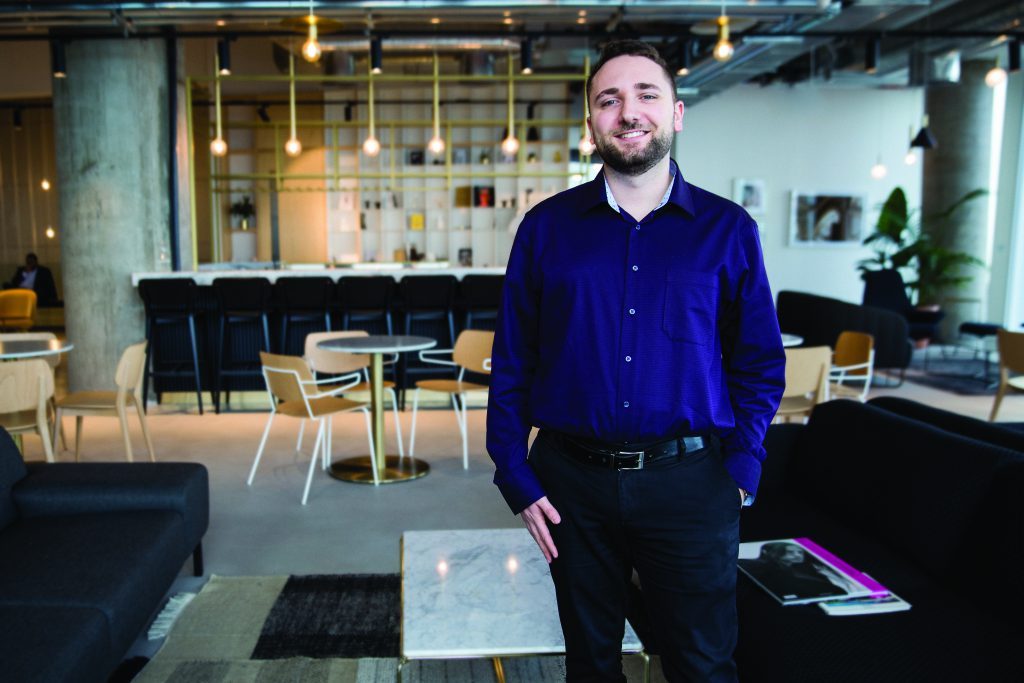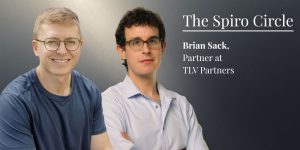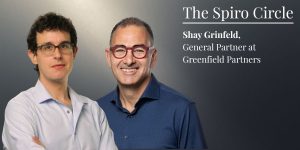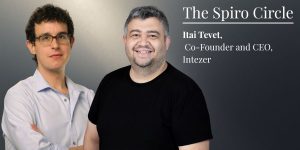It appears that Tal Ben Nun owes a great deal to his cousin. At age seven, the latter gave him a book with which he had studied for his matriculation exams in computer studies, and Ben Nun began to read, teaching himself to program. At age 16, he already had farther flung dreams for the future – to complete his Bachelor’s degree before his military service. His cousin bet him that he couldn’t do it, and Ben Nun took the challenge a step further, completing his Master’s thesis in computer science at the Hebrew University before joining up.
His attraction to programming comes from a deeper place: the need to optimize, or maximize efficiency. “It always bothered me that people would do things a particular way, when it is possible to do it much more efficiently, and to make life easier. Every time I saw something get stuck – I created a program to solve it,” he tells.
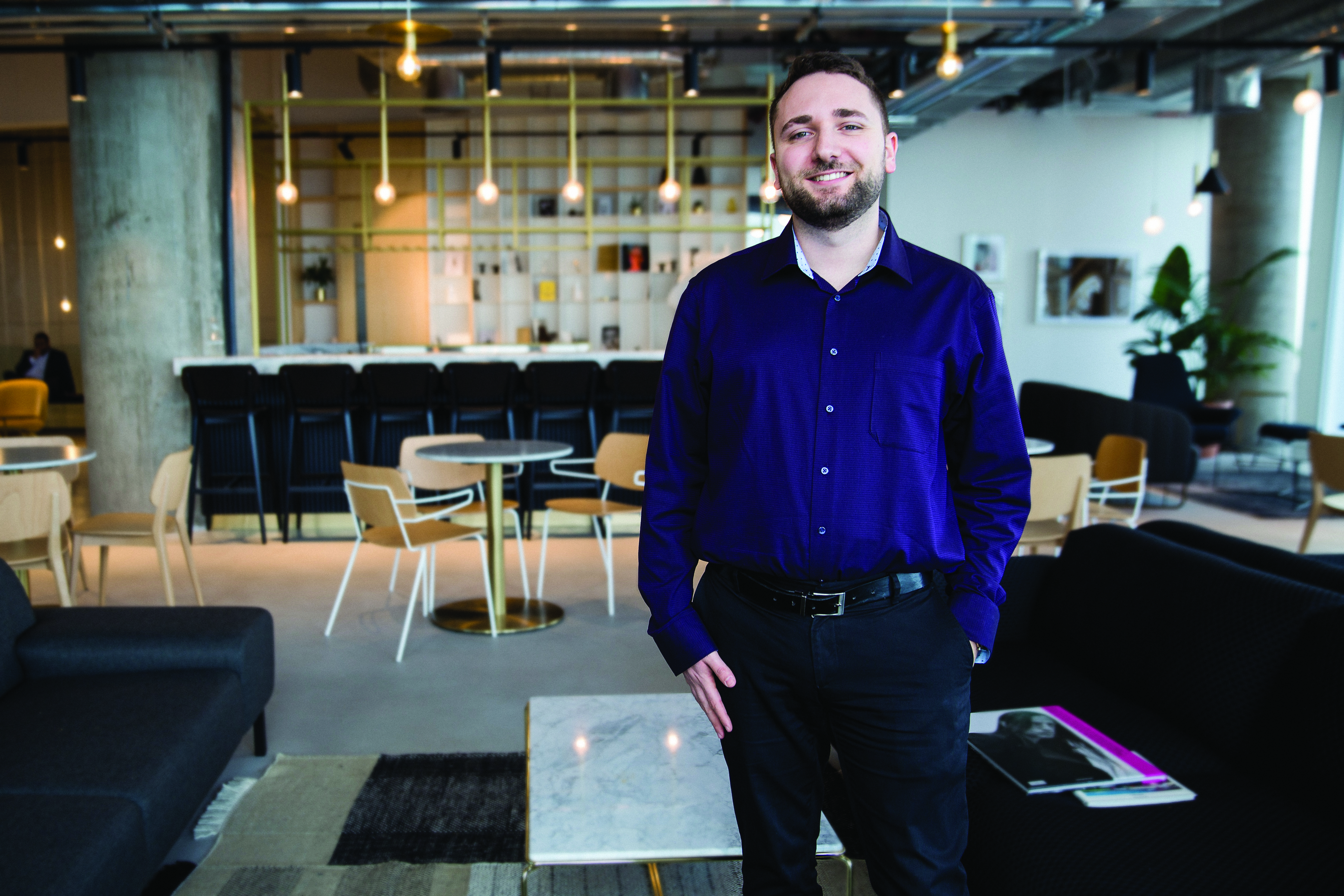
At age 19, Ben Nun enlisted to a police investigations and intelligence unit. He was discharged after serving the requisite three years, but when he realized that that environment enabled him to continue learning, he returned to serve as an officer in the same division. “I actually never left the university. Throughout those years with the police, I did my doctorate simultaneously,” he says.
Ben Nun’s great affection for maximizing efficiency can be seen in every aspect of his life: after he finished his doctorate at the Hebrew University, he went on to do post-doctorate studies at the prestigious ETH technological institute in Zurich, Switzerland, where he uses computers for different purposes – from accurate weather forecasting to artificial intelligence calculations. Meanwhile he is also working on research whose aim is to make programming accessible for scientists and people who use software in their work. “These days, everyone needs software. I focus on scientists, but it is relevant in every field that requires complex calculations,” Ben Nun describes. “The problem in the world of research is that it is impossible to program in a simple way.”
In other words, scientists know how to mathematically describe the physics on which their research is based. This is usually expressed through very complex algorithms. But this raises an additional challenge, in which they are much less skilled – translating those algorithms into efficient software.
Efficiency here is a critical matter, among other reasons, because these programs “run”, that is, process data, for very long periods of time, sometimes even for weeks. Any improvement in their capabilities could mean huge time savings.
Moreover, in order to create the software, the researcher must employ talented students or researchers and sometimes also software engineers. Beyond the resources that this requires, it creates a situation in which every change to the original algorithm made by the researcher, requires much work from that “software team”.
This is where Ben Nun enters the picture, where his goal is to create new ways for the researcher to do his own programming.
“The primary language that we are developing separates the algorithm from the computation, and that almost automatically enables programming optimization for maximum efficiency,” Ben Nun explains. “As a result, for example, you could take an algorithm running on a regular processor (CPU) and make it work on a graphic processor (GPU) with the press of a button”.
Everything is connected to everything else
Ben Nun and his team at ETH are the world leaders in learning about distributed systems (super computers and clusters). “There are a few elements here that connect to one another,” he explains. “On the one hand, the big particle accelerator is in Switzerland – which brings a lot of physicists here. On the other hand, the technological institute where I work has one of the fastest computers in the world, that actually contains 5,000 computers and millions of kernels available for use. This is a tremendous opportunity for me.”
Among other things, this opportunity enabled him to build a “machine” which uses deep learning in order to improve its own code. “We actually developed a new door for many researchers. We wrote code that improves code automatically – the machine taught itself to do that.”
The combination of artificial intelligence, super-computing and programming languages connects all the elements that Ben Nun is currently working on. “If we can understand software automatically, we can automatically understand how to optimize it,” he says. “Today we can read code and say with great precision if it will run faster on a CPU or on a graphic processor. The next step, of course, is to allow artificial intelligence to decide how to optimize the software on its own.”
And what about the future of his career? “I intend to make the technological abilities that we are developing accessible as part of a commercial company,” Ben Nun says. “Before age 40, of course.”
Israeli Ambassador
Ben Nun, who was born in Jerusalem and grew up in Mevasseret Zion, has lived the past two years in Zurich with his partner Noa. He intends to stay there for the next two years too, until he finishes his post doctorate, after which he intends to apply to be a member of faculty in Israel and around the world, with the goal of becoming a professor. Life in Switzerland is different, he says. Public transportations is excellent, but conversation does not flow as is does in Israel. “Somehow, whenever something urgent happens, suddenly nobody understands English.” He is careful in the way he represents the country with regard to other researchers and actually, serves as a kind of informal ambassador. “One professor from Scandinavia even visited Israel as a result of a conversation with me,” he boasts.
In fact, the distance from Israel gives Ben Nun perspective with regard to Israel’s strong position in research and technology. “When I was in Israel, I didn’t know that we were recognized as leaders,” he says. “Our universities rank around the 60th or 70th spots in the world, but the fact is that people are familiar with Israel and treat the country with utmost seriousness, and there is a reason for this – at the conference for artificial intelligence that was held in Canada, a few voices were heard in English and French, but otherwise everybody, and I mean everybody was Israeli.”
Translation by Zoe Jordan

